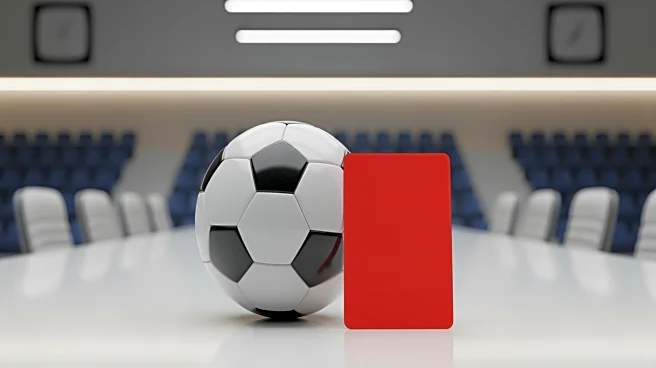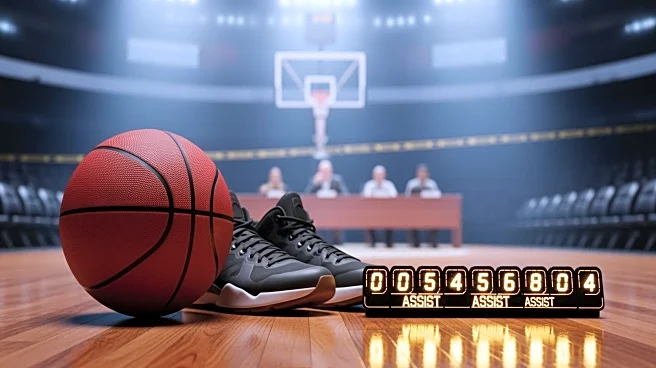What's Happening?
La Liga has issued a warning to the Spanish Footballers’ Association (AFE) regarding player protests against the planned match between Barcelona and Villarreal in Miami. The league management sent a letter
cautioning players about potential consequences for their actions, which included a 15-second pause at the start of matches in protest. Despite the warning, player union representatives have stated they are not intimidated, as the protests did not violate any laws. Team captains have perceived the letter as an attempt to pressure their organization, and some players have expressed dissatisfaction with censorship, as their protests were not broadcasted.
Why It's Important?
The warning from La Liga highlights the tension between league management and players over the commercialization of football. The planned match in Miami represents a shift towards international expansion, which could impact the traditional structure of domestic leagues. Players' protests reflect concerns about the implications for competition integrity and the potential disruption to local fan engagement. The situation underscores the importance of player voices in decision-making processes and raises questions about the balance between commercial interests and maintaining the essence of the sport.
What's Next?
The ongoing dispute may lead to further negotiations between La Liga and the players' union, as both sides seek to address the underlying issues. The league may need to consider the players' concerns and explore alternative solutions that align with both commercial goals and the interests of the teams and fans. The outcome of these discussions could influence future decisions regarding international matches and player involvement in league governance.
Beyond the Headlines
The protests and subsequent warning from La Liga highlight broader issues of player autonomy and the role of athletes in shaping the future of sports. As leagues pursue global expansion, players may increasingly assert their influence to ensure that decisions reflect their interests and preserve the integrity of the competition. This dynamic could lead to shifts in how sports organizations engage with players and incorporate their perspectives into strategic planning.









